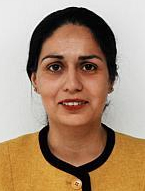LONDON, (Reuters) – When she was a little girl in India, Monisha Kaltenborn dreamed of being an astronaut. The possibility that she might one day run a Formula One team would have been way too outlandish.

Not that anyone else in her birthplace of Dehradun, some 250km to the north of New Delhi, knew too much about the sport in those days either.
They surely do now, with India scheduled to host a grand prix for the first time this year with a burgeoning fan base hungry for a first-hand glimpse of speed and glamour.
Billionaire liquor and aviation entrepreneur Vijay Mallya has his Force India team and Narain Karthikeyan and Karun Chandhok have broken through in turn as drivers.
Kaltenborn, chief executive of the Sauber team and effectively responsible for the day-to-day running of the business, got there almost by accident.
“I never intended to end up in Formula One, it was just circumstances. Not planned at all,” the 39-year-old told Reuters at the team’s 2011 car launch at Spain’s Valencia circuit. Now an Austrian citizen, living in Switzerland with a German husband, Kaltenborn left India at the age of eight and trained as a lawyer.
She joined the Fritz Kaiser Group in 1998, when they were shareholders in what was then Red Bull Sauber, with responsibility for legal and corporate affairs and then when Kaiser sold out stayed on as head of the legal department.
GENDER BARRIER
Last year she was appointed CEO — the most senior woman at any team — and has since broken down gender barriers further by appearing at an official FIA news conference at a grand prix weekend and standing in for team principal and owner Peter Sauber on the pit wall.
The recent debate about sexism in sport that has gripped Britain after comments by sacked Sky Sports presenters Andy Grey and Richard Keys has little resonance for her.
It is true that one former team boss assumed for the best part of a year that she was only attending meetings as Sauber’s interpreter.
Bernie Ecclestone, the sport’s 80-year-old commercial ringmaster, has also joked in the past that women should wear white and stay in the kitchen like all the other domestic appliances. But that was purely for effect. “Funnily enough, on Bernie’s side there always have been women in strong positions there, particularly on the legal side,” said Kaltenborn.
She does not see Formula One, still portrayed by some as a sport where men are men and women generally parade around in swimsuits on the starting grid, as particularly macho.
“We sell that kind of image don’t we? We like to be this glamorous stage which we have, and then you have the chauvinist people in there and they just play the show very well,” said Kaltenborn.
“I think if you met a woman who said I work in Formula One, people would automatically think it’s maybe marketing or press or a grid girl or something. Nobody would think you are doing anything else over there. “But I think it’s changing, which is good. It would be nice to have maybe a female technical director also. I think if you are good, just be yourself and not try to be aggressive on your own, then you are pretty much accepted.”
Kaltenborn also sits on a new FIA Women and Motorsport Commission headed by former rally driver Michele Mouton and is keen to help more women overcome the obstacles to compete.
No woman has ever scored a point in Formula One and the last to try and start a race was Italian Giovanna Amati back in 1992.
There are undoubtedly young girls in India even now dreaming of becoming racing drivers and Kaltenborn would be the last to shatter their ambitions.
“It might sound hard now, but I think if there were a very good female driver around then I am sure she’d get the chance as well (in F1),” she said.
“But I wouldn’t go and choose a driver just because she’s a woman now to have her in there…we (the commission) are being very careful there, we don’t want to go down a way where you patronise female drivers.” Kaltenborn said the problem was to ensure opportunities at a much earlier stage.
“If a girl goes and tells her parents at the age of 15, I want to be a Formula One driver and finance me through all these series, parents don’t believe in them and think it’s a waste of money. And that’s where it starts.”





